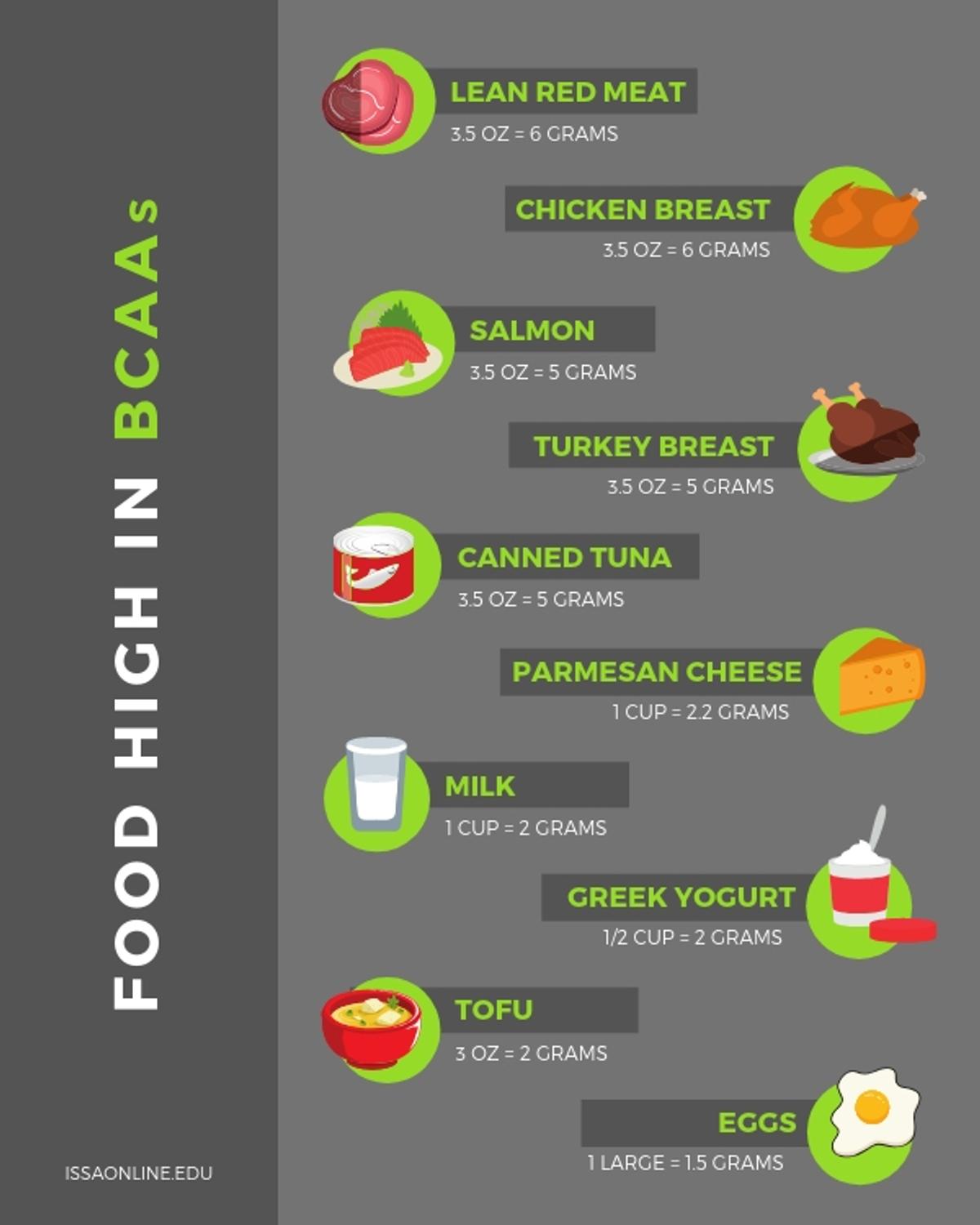
Do You Need to Add BCAA Supplements to Your Workout Plan?
Reading Time: 3 minutes 9 seconds
BY: ISSA
DATE: 2019-04-08
Fitness enthusiasts interested in building muscle or maximizing their exercise plans would do well to familiarize themselves with the importance of the initials "BCAA."
Branched-chain amino acids (BCAAs) are a group of three essential amino acids—leucine, isoleucine, and valine. "Branched-chain" refers to the chemical structure of BCAAs, and "essential," when applied to amino acids, means the body cannot produce them. BCAAs must come from your diet, either through protein-rich foods such as eggs, meat, and dairy products or via supplements, primarily sold in powder form.
BCAAs Broken Down
Leucine is a key amino acid for building muscle. Isoleucine and valine produce energy and regulate blood sugar levels. Together, they help increase muscle growth, decrease soreness after a workout, and reduce fatigue. This makes it beneficial to consume them before, during, and after workouts.
Unlike most other amino acids, BCAAs break down in the muscle rather than in the liver, so they play a role in energy production during exercise. BCAAs are burned as fuel during intense exercise when the body recruits protein for as much as 20 percent of its energy needs.
Benefits of BCAA Supplements
There are those who dismiss the need for BCAA supplementation due to the fact that adequate supplies of BCAAs can be acquired through eating a balanced diet. But their use should not be automatically dismissed as unnecessary. There are times when BCAA supplements may be beneficial, just as with supplements in the in protein supplements versus protein foods debate.
For example, it might be more convenient to use a supplement than to shop for or prepare foods that provide the desired amount of BCAAs. Supplements also are beneficial to those who are working on weight loss and want to make sure they maintain muscle mass.
Another potential benefit is that BCAA supplements help preserve the storage of glycogen, which is the primary fuel muscles use for energy production. Abundant glycogen storage keeps the body from breaking down muscle protein for energy.
In supplement form, BCAAs absorb more rapidly into the bloodstream. BCAAs can help regulate blood sugar levels by preserving the sugar stored in the liver and muscles, and they can stimulate the body's cells to take in sugar from the bloodstream.
BCAA Supplements and Whey Protein
BCAA supplements are often compared with whey protein in terms of which one is the better choice for someone looking to add protein through a supplement. Whey protein, derived from cow's milk, is a complete protein, which means it might not fit certain diets.
Whey protein does include a limited number of BCAAs, which means that it is a good option for clients who are exercising to maintain their fitness as opposed to those having the specific desire to build muscle mass. Whey powder also needs to be digested over several hours in order to take effect in the bloodstream, which means it should be taken 20-30 minutes after a workout.
The benefits of using whey protein over BCAA supplements include the fact that it can be an effective way to curb one's appetite if ingested after exercising, which helps those focused on weight loss. It also is considered a more affordable option than BCAA supplements.
Getting Enough Protein Is Key
Taking in BCAAs through food versus consuming them via supplements is an easy solution when consuming a well-rounded, healthy diet of whole foods. BCAAs ingested through foods in generally lead to steadier absorption rates and supplements often lack other important nutrients.
Good sources of BCAAs through food:
Lean meat
Fish
Milk
Tofu
Cheese
Eggs
Quinoa
Brown rice and whole-wheat foods, specifically, are good options for raising the amount of leucine in one's diet. Almonds and cashews are rich in isoleucine, and dairy, grains, mushrooms, and peanuts are all good sources of valine.
Just as there are recommendations for determining how much protein to ingest on a daily basis, recommendations exist for BCAAs as well. Recommendations for women generally suggest nine grams per day while men should aim for 12 grams per day. Bodybuilders have been known to take in as many as 35 grams a day, and there is no evidence to suggest that too many BCAAs can lead to harmful side effects. But there is a point where adding more BCAAs to one's diet no longer produces added benefits.
If you are interested in learning more about fitness, nutrition, and building muscle, check out the ISSA's personal training course.

Click HERE to download this handout and share with your clients!